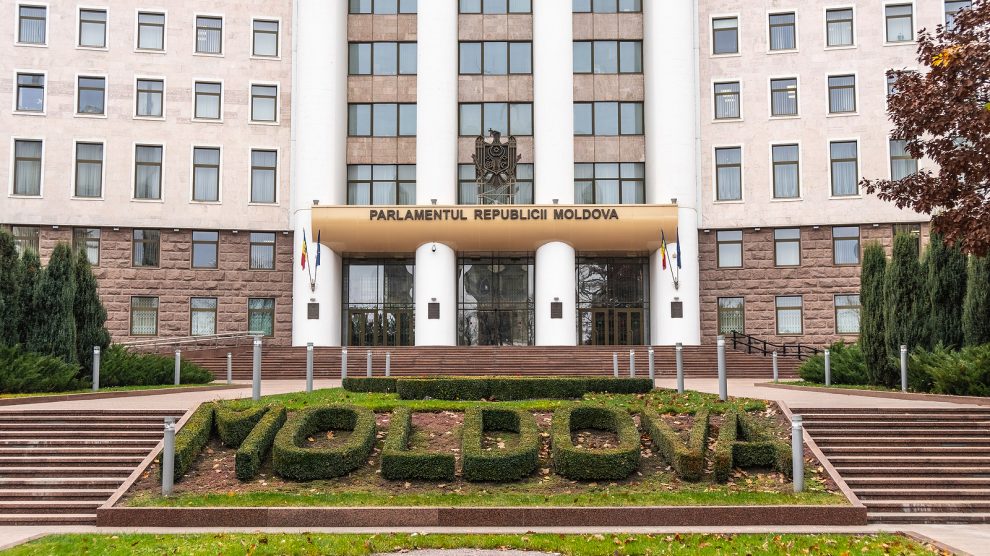A new government in Chișinău will not change Moldova’s pro-European foreign policy, but it will likely pay more attention to the failings of the country’s economy.
The resignation of Moldova’s prime minister is not usually front-page news; in most parts of the Western world, it’s not usually news at all. Few things about Moldova are. The odd article about its superb wines perhaps, a feature on its breakaway region of Transnistria, soccer results when its teams play more starred opponents.
- EU again heaps praise on Moldova, but is it any closer to membership?
- ‘By the book’: From here on in, Ukraine and Moldova should expect no special treatment from the EU
- Moldova needs EU candidate status and effective support for its membership perspective
Russia’s war on Ukraine has changed all that. Moldova, which shares a long border with Ukraine, has become a frontline state of great interest to anyone following events in Eastern Europe. At the beginning of the war there were concerns that Russia might use its military base in Transnistria to launch attacks on southern Ukraine. Now, changes in the make-up of its government have made the news.
Erstwhile prime minister Natalia Gavriliţa’s resignation on February 10 – just days after she had won plaudits in Brussels for the calm, effective way that the country has dealt with the considerable fallout of Russia’s invasion of its neighbour – came as no surprise to seasoned Moldova watchers.
Rumours of Gavriliţa moving aside had been circulating since late last year. As well-liked and respected as she remains in Brussels, the Harvard-educated Gavriliţa, a former World Bank official, was viewed as aloof and increasingly out of touch with the day-to-day problems of a country that by most metrics is one of the poorest in Europe. Poll ratings for Gavriliţa and her Party of Action and Solidarity (PAS) fell sharply last year. With President Maia Sandu – backed by PAS – facing reelection next year, most of the country’s political analysts felt that a governmental reset was overdue.
Gavriliţa admitted as much in her resignation speech. Defending her record in office she said that: “Moldova is now welcomed with open arms inside the EU, Moldova has friends. If the government had the same support at home, we could have made more progress.”
It’s the economy
As her replacement Sandu has nominated Dorin Recean, a former interior minister whose appointment is expected to be nodded through this week. Despite its falling poll ratings, PAS retains a comfortable majority in parliament.
While Moldova’s foreign policy will not change – integration with the EU, which accepted Moldova as a candidate last year, will remain a priority – in announcing Recean’s nomination, Sandu made a point of stressing that the economy must be the government’s focus in 2023.
Moldova’s economy contracted sharply during the second half of 2022 and will only emerge slowly from recession in 2023, according to the Vienna Institute for International Economic Studies (wiiw).
Inflation is currently running at over 30 per cent amid surging prices for food and energy. Moldova remains heavily reliant on Russia for gas: Gazprom hiked prices last September forcing a 27 per cent increase in household bills. Street protests followed, organised by the Șor party, whose leader Ilan Șor has been on the run since 2019 following his conviction for fraud and money laundering.
Although a pipeline linking the country with Romania, completed at the end of 2021, has allowed Moldova to begin diversifying supplies, it could be another year before it can fully replace Russian imports with Western sources. The country also currently lacks gas storage facilities, meaning that it must store gas in Romania and Ukraine.

Security
Besides Moldova’s economic woes, Recean will also need to deal with an increasingly long list of security threats, another area where Gavriliţa was viewed by the Moldovan public as weak.
The day before she resigned, Ukraine’s President Volodymyr Zelensky said that his intelligence services had identified a Russian plan to “destroy” Moldova.
“These documents show who, when and how Russia is going to break democracy of Moldova and establish control,” he said, adding that he “immediately” warned Moldova about the threats. Moldovan intelligence services later confirmed they had also identified “subversive activities” aimed at “undermining the state of the Republic of Moldova, destabilising and violating public order.”
On February 13, Sandu offered more details about the Russian plan. It includes the infiltration of plain clothes agents with military training to carry out violent attacks on state institutions and kidnappings, she warned.
Oazu Nantoi, a PAS MP and one of Moldova’s most respected politicians, told RFE’s Moldovan service at the weekend that Sandu had nominated Recean “precisely because of his experience in national security”.
Recean is likely to seek closer co-operation with NATO. Officially neutral, the country would need a change in its constitution to begin the process of NATO membership, a move which even after Russia’s invasion of Ukraine looks unlikely.
Outgoing Foreign Minister Nicu Popescu last week admitted however that Moldova’s current neutral status was “insufficient”.
Unlike many news and information platforms, Emerging Europe is free to read, and always will be. There is no paywall here. We are independent, not affiliated with nor representing any political party or business organisation. We want the very best for emerging Europe, nothing more, nothing less. Your support will help us continue to spread the word about this amazing region.
You can contribute here. Thank you.







Add Comment